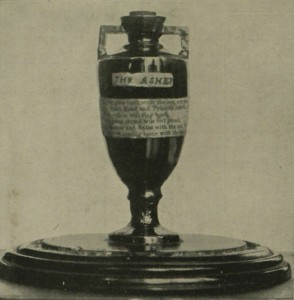Memento mori
So that’s it, then. The English summer is over, another Ashes series is only hours away, Sachin Tendulkar has called time on a career as notable for what it said about celebrity, history, and an entire country’s gestalt as for the bare statistical facts of its long, illustrious unfurling, as if that maiden Test ton in 1990 was the start of a red carpet unrolling into infinity, a future in which the image sometimes became indistinguishable from the individual.
There have been many fine pieces written in tribute to Sachin, the best of them describing an isolated moment, an encounter (on or off the field), experienced by the writer and how it affected them, because while many have tried to pin him down as an individual with all the various depths of light and shade that exist in a person, perhaps his greatest legacy is the effect he has had on his country, the Indian people, cricket fans around the world: a force of nature, like gravity, or oxygen.
Driving back from a family funeral in Scotland last week all of this touched me only peripherally, at a distance, though it seemed in keeping with the notion of November as a time of endings and intimations of mortality. The long drive south, through darkness, constant rain, the penumbra of gloom on pine clad hills, seemed depressingly apposite.
Just as you can’t sum up a life in a twenty-minute eulogy, the hype surrounding Sachin’s final bow at Mumbai was so much extraneous scaffolding, and with so many clichés – heart-felt nonetheless – that it drives home the inadequacy of language. But then words are not enough for a lot of things.
Life has a treadmill feel to it at the moment, a one-foot-after-the-other deal. Anything that can be put into words feels glib. It’s been a truly lousy year for people I care about: cancer, heart problems, mental illness, bereavement. At the moment it feels like the next crisis is just around the corner. I don’t like things I can’t control. Sometimes, this life we live, on this small rock, wobbling on its axis, spinning through an uncaring cosmos, seems a little too random for me. Fate, of course, is impersonal, but I’d go so far as to say there are times when the completely random becomes desperately unfair.
I remained relatively untouched by the Sachin hoopla and the Ashes build-up because it felt like sport was trivial when placed against the end of a life. But as I’m finding now, there is welcome distraction in the irrelevant, and it helps to rationalise the struggle when you tell yourself that everything is insignificant when placed next to something larger, because there’s always something larger – therefore everything is equal in its seeming insignificance, and everything matters.
From paying only passing attention to the publicity machine that’s gone into overdrive ahead of the Ashes, from not feeling much enthusiasm for the series itself (I guess it doesn’t help that we’ve only just had one – Ashes series, like buses, etc) I’m starting to feel the glimmer of excitement. It might even be on its way to becoming a bona-fide buzz, even though the weather for Brisbane looks diabolical and more likely to engender disappointment and delayed gratification.
As the toss grows ever nearer, I’m devouring the previews and the predictions, the hype and the controversies. Matt Prior’s calf. Michael Clarke’s back. Michael Clarke’s front in “announcing” England’s Gabba line-up before England did. Kevin Pietersen’s 100th Test. How the pitch will play for the first two hours. How George Bailey will fare for Australia, batting at 6. Michael Carberry embarking on his second time round as England Test opener. How Malcolm Conn, Australian journalist and redoubtable rabble-rouser, thinks England are on the way down and the Poms won’t have it so easy this time around. Stuart Broad as the new pantomime villain.
All petty bickerings, bravado blusterings, preenings, struttings and five-nil predictions. All trivial when placed in the greater scheme of things.
There is comfort in trivialities.
There is comfort in runs scored and balls bowled, the white lines that mark the 22-yard area of combat and the boundary rope that encompasses the whole. Everything outside that rope can be forgotten when an Ashes Test is underway.
This is how we go on. We make the little things matter.

Thanks for this. A timely reminder of how it’s possible to draw strength and consolation from the relative importance of things.
My mother died, relatively suddenly, during the last Ashes Test at Brisbane three years ago, so similar thoughts aren’t far from my mind at the moment.
Quite nice to stand outside the Sachin hoopla as well. Some of us simply couldn’t avoid being sucked in (possibly against our better judgement).
Thanks for the comment, Brian.
It’s amazing how this sport becomes enmeshed with both the best and the worst times of our lives – especially in light of the news today of Jonathan Trott’s struggle with depression. His never-ending routines while at the crease make sense now, viewed as a coping mechanism. I guess we all have our systems for keeping the demons at bay; sometimes they don’t always work. All we can do is try to keep “buggering on”.
Best,
LSF